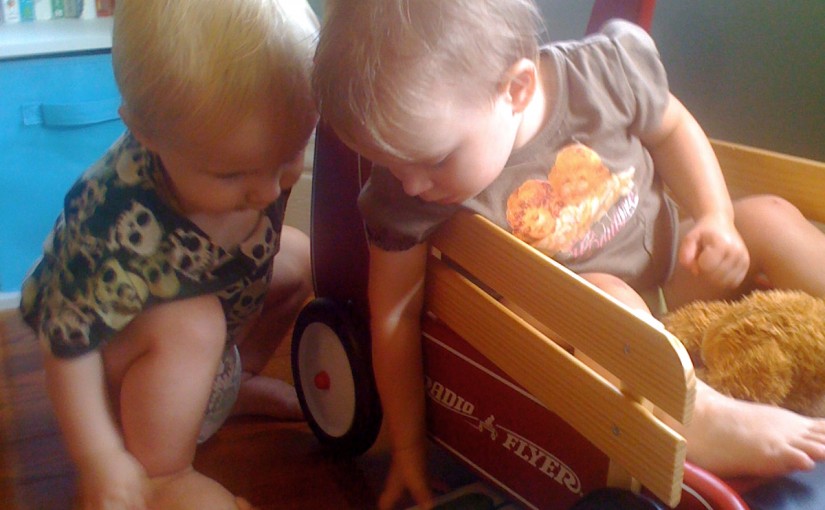For children with autism, it can be a challenge to make social connections with peers. For their parents, helping these children learn to play with others well is a common challenge. But like most things in life, children with autism can improve their skills for playing and socializing with practice.
Which is a wonderful thing, because learning to play does more than keep a child busy for an hour or two. In fact, play helps children build important skills that will help them succeed and thrive throughout their lives.
What are these skills that we can build through play? Here’s a look at some of the ways autistic children benefit from play dates.
Play is a “safety zone.”
Playtime is a place where children can try out different things, such as life roles, without consequence. This lets them explore what they see in the world around them.
Boosts confidence.
Autistic and typical children alike gain confidence through play. Because they have worked things out in this “safe zone,” they are able to more confidently engage in real-world situations.
Improves ability to interact with new people.
Warming up to new people can be especially challenging for kids with autism, but play dates provide a great way to help your child start getting to know new people regularly. With time, this has been shown to make meeting new people easier for autistic children.
Practices important social skills.
This includes social expectations such as sharing and taking turns, which are instilled early but can be challenging for kids with autism to act on.
Helps identify social skill deficits.
When your child has play dates, observe how the children interact. Notice where your child seems to struggle, get stressed, or have trouble interacting appropriately. This can be a great way to learn how to help your child grow even more.
When arranging play dates, plan ahead to give your child time with many different kinds of peers, both autistic or other special needs, and typical kids. Engaging with typically abled children is important for learning age-appropriate social skills.
You can help your child prepare for play dates by talk about what to expect several days in advance, and again shortly before the other child arrives. Put away any toys that your child may not be ready to share so they don’t cause an issue, and to start, stick to activities your child knows well and enjoys—s/he is already doing on new thing! Shorter play dates are better to start, even just 30 minutes or shorter, to help your child adjust.
Over time, your child will become more comfortable in play dates, and be able to do more. Along the way, they’ll build important skills that will help them make friends, adjust socially, and live happy, full lives.
